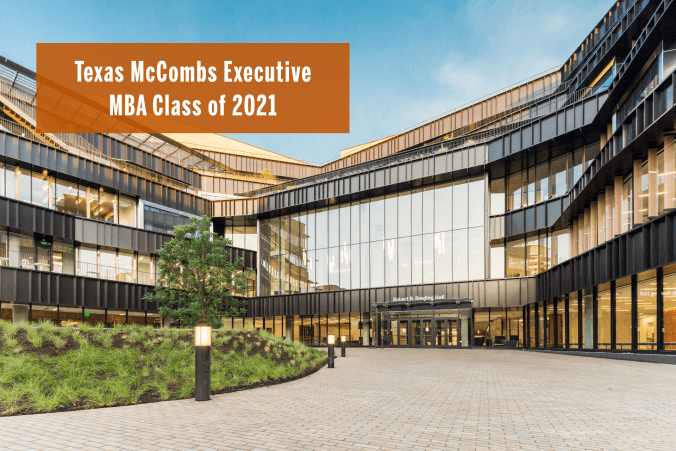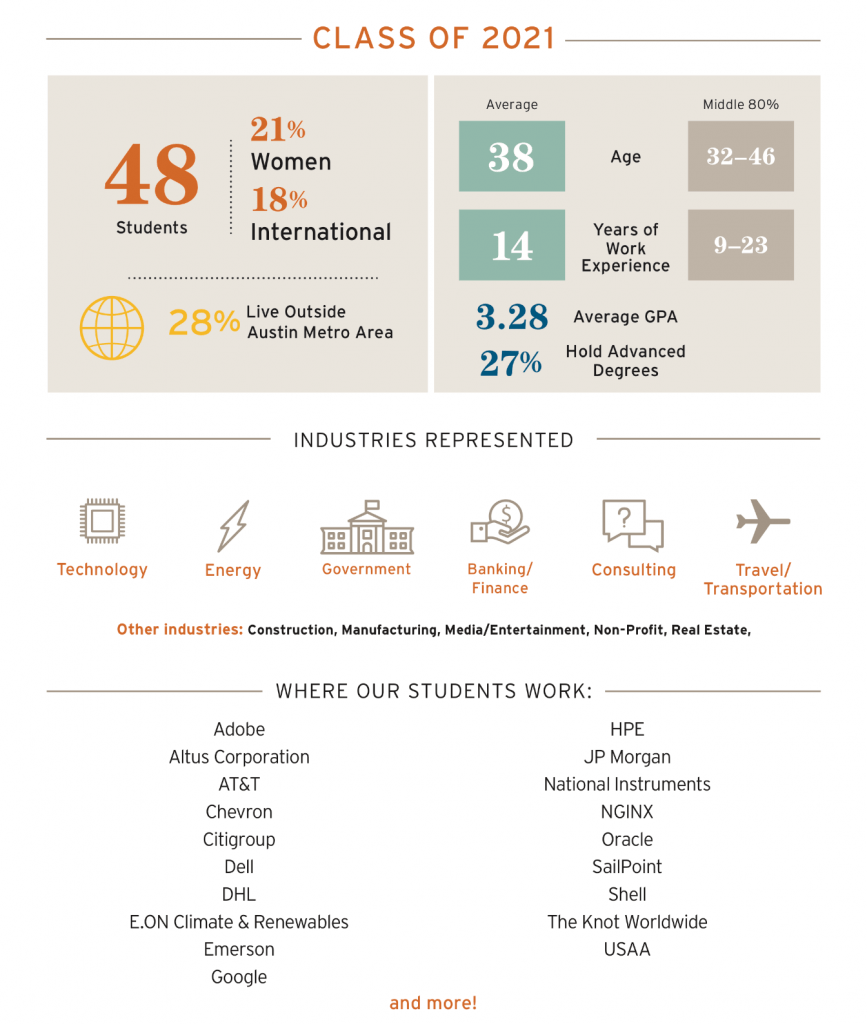An MBA interview is a focused, conversational meeting — usually 20 to 45 minutes — where an admissions team member, current student, or alumni interviewer evaluates your readiness for business school. It’s your opportunity to move beyond written essays and test scores, bringing your leadership stories and career goals to life.
Within the broader MBA admission journey, this personal interview serves as a pivotal touchpoint. The admissions committee uses it to confirm the strengths they’ve already seen in your application and to gauge qualities that transcripts can’t capture: presence, communication skills, and shared values with the MBA program.
Reaching the interview stage signals you’ve cleared the first hurdle of the application process. .
You’re Invited to an MBA Interview: What Does It Mean?
First, let’s decode the invitation itself. If you’re applying to the Working Professional or Executive MBA at Texas McCombs, an interview with our admissions team is required, in addition to your video assessment. For Full-Time MBA applicants, the interview is optional and led by current student peers — an extra chance to share insights that may not appear elsewhere in your application.
What sets the McCombs application process apart from other business schools is that all applicants get to complete all application components, including the interview. Keep in mind that the interviews help us verify the qualities we value most: authentic motivation, collaborative spirit, and readiness to lead through disruption. They also give you space to ask thoughtful questions and confirm that McCombs is the right launchpad for your goals.
Remember, every interaction with the Texas McCombs community — from a quick email to a chat with our receptionist — shapes your candidacy. Treat each moment of engagement as a chance to demonstrate professionalism, curiosity, and genuine enthusiasm for our MBA program.
What Is the Interviewer Looking for? Our Interview Process
At Texas McCombs, interviewers listen for more than just polished answers. They’re tuning into three core signals: executive presence, clear and concise communication, and genuine enthusiasm for our community and culture.
The conversation centers on three key competencies:
- Motivation: We want to see that you understand how an MBA — specifically a Texas McCombs MBA — fits into your journey and advances your professional goals, and that you’re energized by the journey ahead.
- Collaboration: Successful MBA candidates show self-awareness of their strengths, rely on teammates’ expertise when needed, and elevate group outcomes.
- Preparedness: Particularly for the Working Professional and Executive MBA candidates, we want to see that you’ve done your homework on the specific program you’re applying to, understand its unique resources and format, and have thoughtfully considered how you’ll manage the demands of graduate study alongside your current responsibilities. This includes having the support systems in place — whether from your employer, family, or both — to help you succeed throughout the program.
Here’s what you can expect from our MBA interview process:
- Format: All Working Professional and Executive MBA interviews are virtual, one-on-one with admissions staff, and last 20–30 minutes. Full-Time MBA optional interviews are also virtual, 20 minutes and led by current students.
- Typical length: Expect a 20-30-minute window depending on the program, giving adequate time for brief introductions, answering behavioral questions, and Q&A.
- Tone: Think conversational yet evaluative. We’re eager to learn about you, help you learn more about us, but we’re also measuring fit with our collaborative culture.
- Virtual vs. in-person: If you ever encounter an in-person setting (at another school or future round), remember to build rapport through firm handshakes and eye contact. In virtual rooms, give enough time to test technology, frame good lighting and camera view, and maintain steady engagement on camera.
How To Prepare for an MBA Interview
Strategic preparation turns a good MBA interview into a memorable one. Here are our tips for preparing for your MBA interview:
Review Your Application in Advance
Start by rereading your entire application — essays, resumes, and short answers — to ensure every story you share in the interview aligns with what you’ve already submitted. Refreshing these details also helps you address any potential weak spots, such as an unconventional career pivot, with confidence and clarity. Don’t shy away from having a copy of your resume in front of you for reference!
Understand the Program’s Specifics
Understand our core values, coursework, opportunities to engage outside of the classroom, and career resources so you can connect them directly to your goals. Showing that you’ve done the homework demonstrates respect for the admissions committee and underscores why McCombs is the ideal launchpad for your next chapter.
Practice Common MBA Interview Questions
When it comes to MBA interview preparation, practice is non-negotiable. Conduct mock interviews with a mentor or peer and lean on behavioral frameworks like the STAR method to structure your responses. Rehearse answers out loud until they feel natural, not scripted. As you practice, focus on concise storytelling, specific and relevant examples, tie back the outcome, and genuine enthusiasm.
To help you cover every angle, follow this quick hit list of interview best practices:
- Identify 2–3 personal stories that highlight leadership, problem-solving, and teamwork.
- Prepare succinct answers to common MBA interview questions, using real metrics when possible. Practice saying these answers out loud.
- Dress professionally (just as you would for an in-person interview), test your technology, and plan to log in early for virtual interviews.
- Craft thoughtful questions that showcase your curiosity about the program, culture, and community.
- Practice closing strong by summarizing your values alignment and reiterating enthusiasm for admission.
On interview day, take care of both mind and body. A short walk, deep-breathing exercises, or a quick mindfulness session can calm nerves and sharpen focus. When the conversation ends, thank your interviewer and confirm next steps — you’ll be ready for the questions ahead.
Common MBA Interview Questions + How To Answer Them
While every MBA interviewer brings a unique style, most conversations revolve around four themes: background and motivation, professional experience, behavioral scenarios, and career fit. Preparing clear, story-driven answers for each category keeps you agile in the moment.
Below is a collection of common MBA interview questions, paired with guidance on how to craft winning responses.
Background & Motivation
Why do you want to pursue an MBA?
Connect your past experience, current skill gaps, and future ambitions. Show that the MBA is the strategic bridge, not a detour or something to get done on your bucket list.
Why McCombs specifically?
Reference courses and faculty, engagement with current/past students, student organizations or the program’s collaborative culture that align with your goals. Show you’ve done your homework by mentioning conversations with current students or alumni and explain what aspects of the Texas McCombs community – whether it’s the innovative spirit, professional network in your city, or specific program resources – make it the right fit for your journey. Demonstrate you’ve envisioned yourself here.
Professional Experience
Tell me about a time you overcame a professional challenge.
Use the STAR method — Situation, Task, Action, Result — quantifying outcomes whenever possible.
Describe a leadership experience.
Highlight how you motivated others, navigated complexity, and delivered measurable impact.
Behavioral & Situational
Give an example of working with a difficult team member.
Emphasize empathy, active listening, and constructive conflict resolution.
How do you handle conflict?
Illustrate a step-by-step approach: identify root causes, facilitate open dialogue, and commit to a shared solution.
Goals
What are your short- and long-term career goals?
Outline a clear career trajectory with specific timeframes. Show how your short-term goal connects to your long-term vision — whether that’s a natural progression in your current field (for WP/EMBA candidates) or a strategic pivot to a new industry or function (often the case for Full-time candidates). Either way, demonstrate that your MBA is the intentional bridge between where you’ve been and where you’re headed. Tie both goals to relevant McCombs resources that will help you get there.
How will McCombs help you achieve those goals?
Mention specific classes, co-curricular resources, or experiential learning opportunities that will accelerate your journey.
Answering these specific questions with authenticity not only showcases your readiness but also underscores your fit with our community.
Explore the Full Application Process
Interview day is just one piece of the larger admissions puzzle. Texas McCombs designs every step — from essays and video assessments to letters of recommendation — with a human-centered, future-focused lens. Each component invites you to showcase your collaborative spirit, clarify your motivations, and highlight the impact you plan to make.
Whether you choose to schedule an interview, engage with student ambassadors, or join a virtual information session, remember that every touchpoint is an opportunity to reinforce your story. Select the options that best align with your goals and approach them with the same enthusiasm you’d bring to a boardroom pitch.
Ready to dive deeper? Explore our application process to discover timelines, requirements, and insider tips that will help you present a standout application. We look forward to learning more about your journey — and potentially welcoming you to the Texas McCombs family.
Explore our application process and take the next steps toward pursuing an MBA.

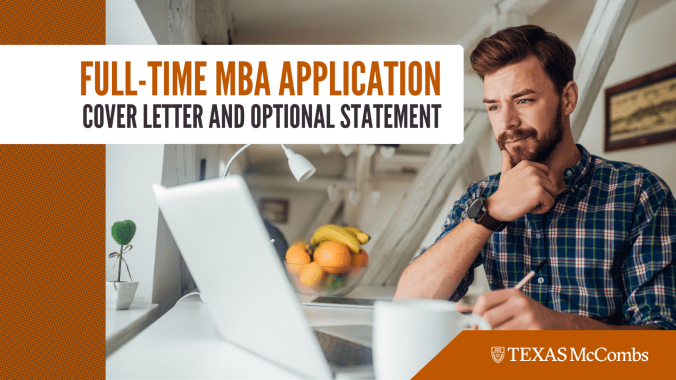
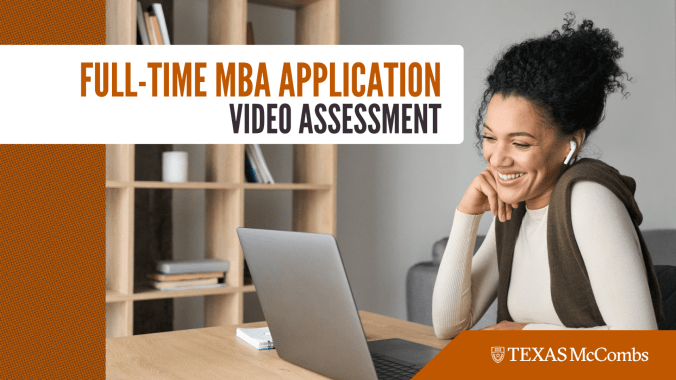
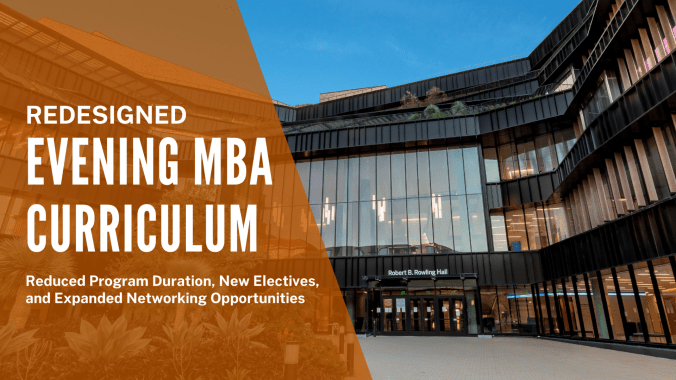
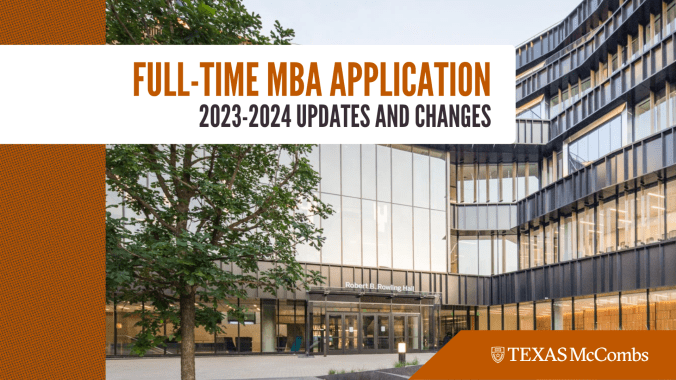
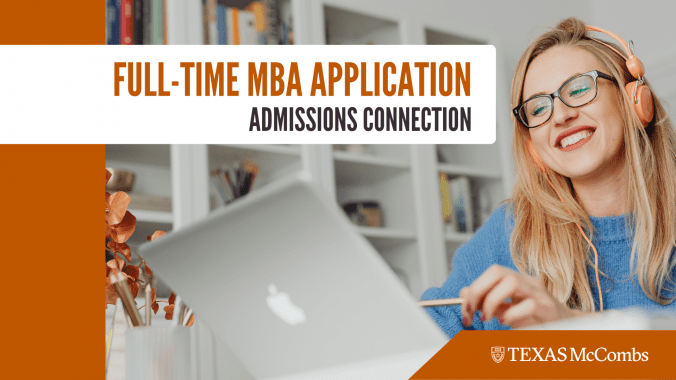
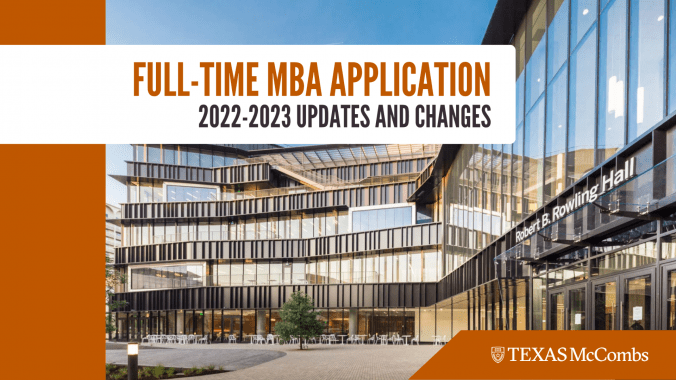
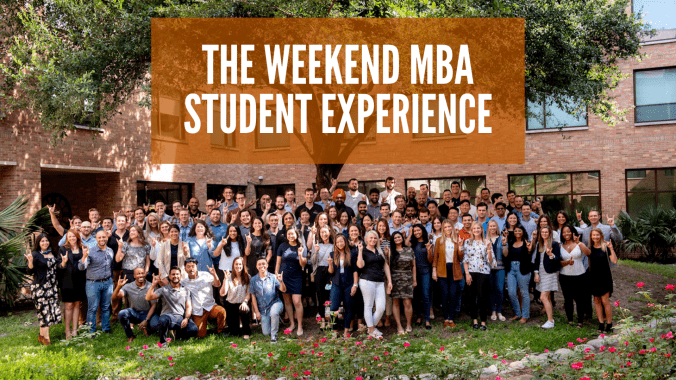
 The MBA Insider content below comes from
The MBA Insider content below comes from 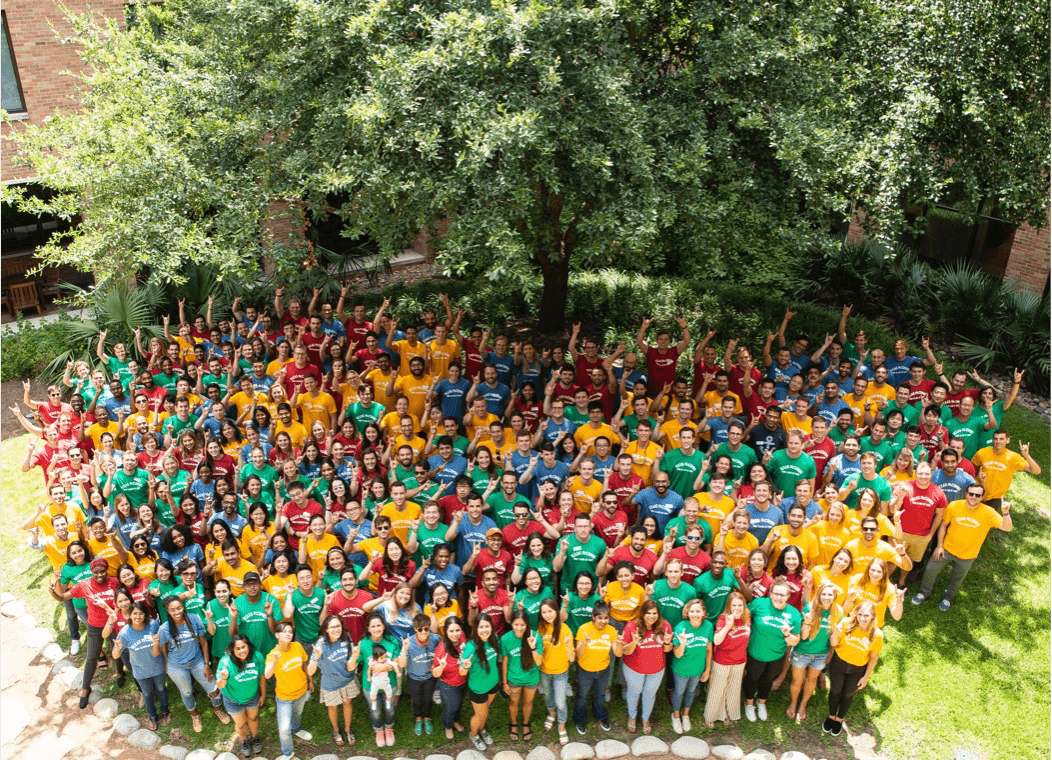
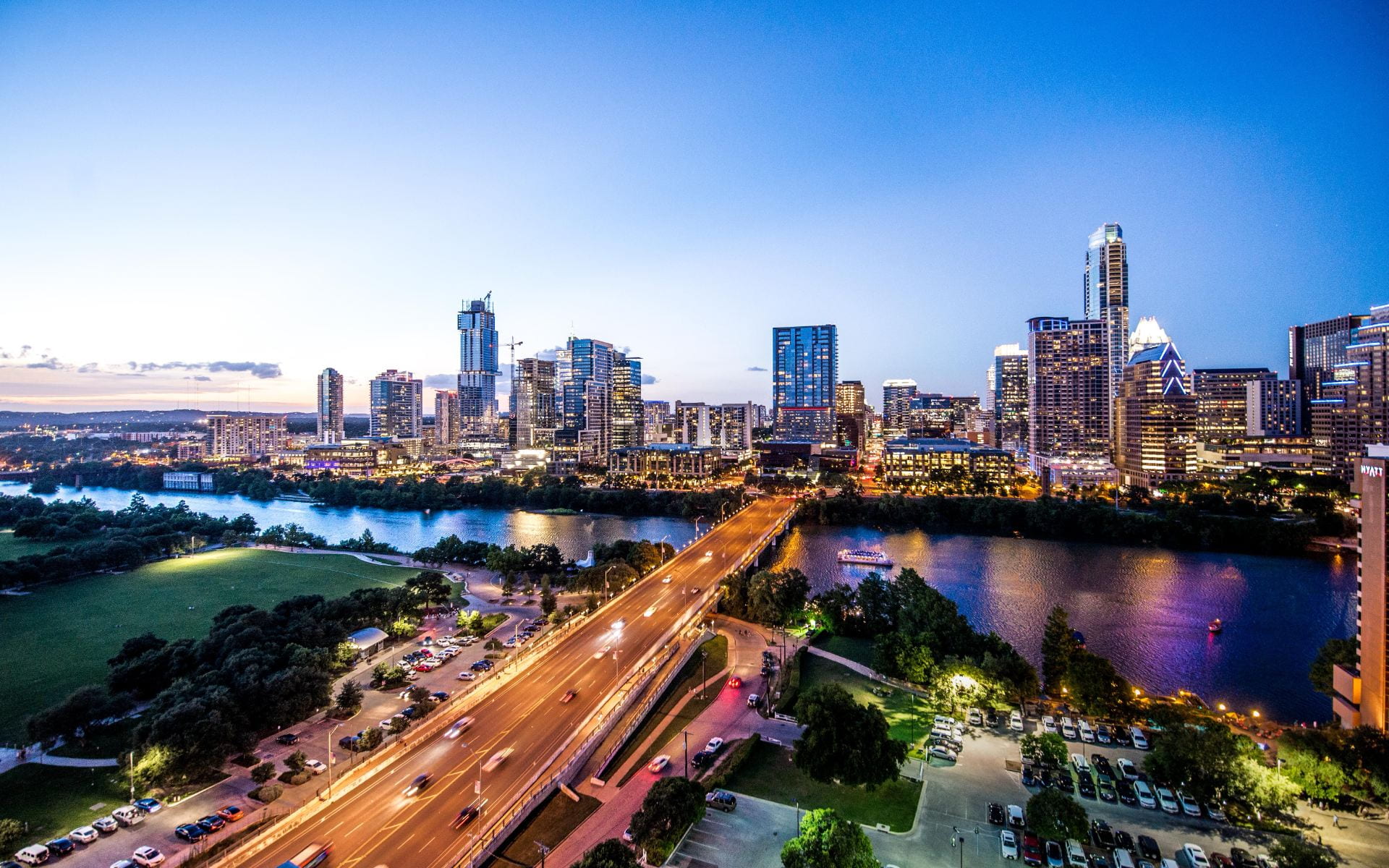


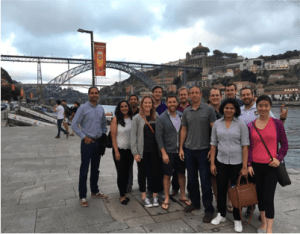
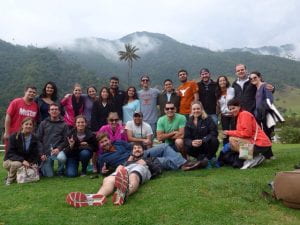


 Christie Jenkins
Christie Jenkins Emily Le
Emily Le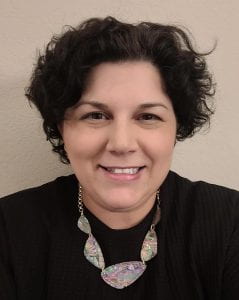 Melanie Krugel
Melanie Krugel